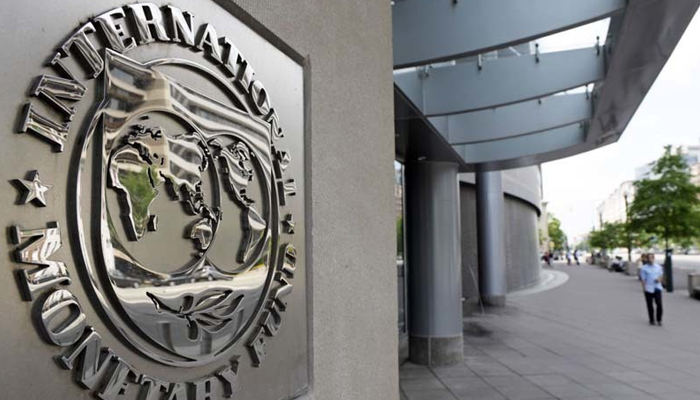$3bn deal is meant to give Pakistan policy anchor: IMF
What exactly Pakistan asked IMF in terms of relief or what kind of relaxations they have asked for? That’s first question
ISLAMABAD: The IMF said on Thursday that the $3 billion Standby Arrangement (SBA) programme for Pakistan was to provide a policy anchor for addressing domestic and external imbalances and a framework for securing financial support from other donors including fresh financing and rollovers of due debts.
In a media briefing held at IMF’s headquarters in Washington D.C. on Thursday, the Fund’s spokesperson was inquired about Pakistan and the IMF whereby the incumbent government has asked for relief and wanted some permissions from the IMF under the existing agreement on extremely high energy prices, and electricity bills primarily.
What exactly government of Pakistan has asked the IMF in terms of relief or what kind of relaxations they have asked for? That’s the first question. Second, there is some criticism that the IMF agreement is undermining the human rights of the masses of Pakistan. Has the IMF considered these things about human rights especially for minorities and the bigger chunk right now when we are talking about 92-95 million people living below the poverty line, the IMF’s spokesperson replied that of course, the programme was approved on July 12th. It’s a 9-month standby arrangement for an amount of $3 billion to support the Authority’s Economic Stabilization programme.
The objectives of the programme are to provide a policy anchor for addressing domestic and external imbalances and a framework for financial support from other donors, and multilateral and bilateral partners, including fresh financing and rollovers of debt coming due. Policy efforts centre on the implementation of the fiscal year 2024 budget, the appropriate monetary policy aimed at bringing inflation down, and continued reforms to improve the viability of the energy sector.
All of these reforms are ultimately aimed at paving the way for higher, more inclusive and more resilient growth. To support social development and climate resilience, the programme envisages plans to strengthen public financial management, and tax administration efforts, and to better prioritize public investment. And all of this is being done with support from partners including not only the IMF but also the World Bank and the Asian Development Bank.
When her attention was drawn to the recent interview by our Managing Director, she said the MD was very clear about poverty and inequality. Here, her plea was to place the burden on the wealthy segments of society. It’s important, as the Managing Director said, that the rich pay their taxes, the tax-to-GDP ratio in Pakistan is very, very low and the poor are protected in society. The poor and the vulnerable members of society are protected and I think her words in this were very clear.
-
 Lawyer Of Epstein Victims Speaks Out Directly To King Charles, Prince William, Kate Middleton
Lawyer Of Epstein Victims Speaks Out Directly To King Charles, Prince William, Kate Middleton -
 Microsoft CEO Shares How Gates Doubted $1bn OpenAI Investment
Microsoft CEO Shares How Gates Doubted $1bn OpenAI Investment -
 Milo Ventimiglia Calls Fatherhood 'pretty Wild Experience' As He Expects Second Baby With Wife Jarah Mariano
Milo Ventimiglia Calls Fatherhood 'pretty Wild Experience' As He Expects Second Baby With Wife Jarah Mariano -
 Chinese Scientists Unveil Advanced AI Model To Support Deep-space Exploration
Chinese Scientists Unveil Advanced AI Model To Support Deep-space Exploration -
 Anthropic’s New AI Tool Wipes Billions Off Cybersecurity Stocks
Anthropic’s New AI Tool Wipes Billions Off Cybersecurity Stocks -
 Trump Announces He Is Sending A Hospital Ship To Greenland Amid Rising Diplomatic Tensions
Trump Announces He Is Sending A Hospital Ship To Greenland Amid Rising Diplomatic Tensions -
 'Never Have I Ever' Star Maitreyi Ramakrishnan Lifts The Lid On How She Avoids Drama At Coffee Shops Due To Her Name
'Never Have I Ever' Star Maitreyi Ramakrishnan Lifts The Lid On How She Avoids Drama At Coffee Shops Due To Her Name -
 Inside Prince William’s Plans For Prince Harry: What Will Happen To Duke Once He’s King
Inside Prince William’s Plans For Prince Harry: What Will Happen To Duke Once He’s King -
 Chyler Leigh Pays Moving Homage To 'Grey’s Anatomy' Co-star Eric Dane: 'He Was Amazing'
Chyler Leigh Pays Moving Homage To 'Grey’s Anatomy' Co-star Eric Dane: 'He Was Amazing' -
 Did You Know Tech CEOs Limit Screen Time For Their Own Kids?
Did You Know Tech CEOs Limit Screen Time For Their Own Kids? -
 Matthew Lillard Admits Fashion Trends Are Not His 'forte'
Matthew Lillard Admits Fashion Trends Are Not His 'forte' -
 SpaceX Launches Another Batch Of Satellites From Cape Canaveral During Late-night Mission On Saturday
SpaceX Launches Another Batch Of Satellites From Cape Canaveral During Late-night Mission On Saturday -
 Princess Beatrice, Eugenie Get Pulled Into Parents’ Epstein Row: ‘At Least Stop Clinging!’
Princess Beatrice, Eugenie Get Pulled Into Parents’ Epstein Row: ‘At Least Stop Clinging!’ -
 Inside Kim Kardashian's Brain Aneurysm Diagnosis
Inside Kim Kardashian's Brain Aneurysm Diagnosis -
 Farmers Turn Down Millions As AI Data Centres Target Rural Land
Farmers Turn Down Millions As AI Data Centres Target Rural Land -
 Trump Announces A Rise In Global Tariffs To 15% In Response To Court Ruling, As Trade Tensions Intensify
Trump Announces A Rise In Global Tariffs To 15% In Response To Court Ruling, As Trade Tensions Intensify




